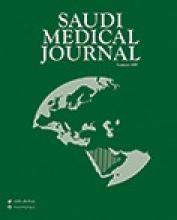Abstract
Objectives To examine the relationship between students’ collaborative performance in a problem-based learning (PBL) environment and their personality traits.
Methods This retrospective, cross-sectional study was conducted using student data of a PBL program between 2013 and 2014 at Sungkyunkwan University School of Medicine, Seoul, South Korea. Eighty students were included in the study. Student data from the Temperament and Character Inventory were used as a measure of their personality traits. Peer evaluation scores during PBL were used as a measure of students’ collaborative performance.
Results Simple regression analyses indicated that participation was negatively related to harm avoidance and positively related to persistence, whereas preparedness for the group work was negatively related to reward dependence. On multiple regression analyses, low reward dependence remained a significant predictor of preparedness. Grade-point average (GPA) was negatively associated with novelty seeking and cooperativeness and was positively associated with persistence.
Conclusion Medical students who are less dependent on social reward are more likely to complete assigned independent work to prepare for the PBL tutorials. The findings of this study can help educators better understand and support medical students who are at risk of struggling in collaborative learning environments.
Footnotes
Disclosure. Authors have no conflict of interests, and the work was not supported or funded by any drug company.
- Received June 9, 2016.
- Accepted September 21, 2016.
- Copyright: © Saudi Medical Journal
This is an open-access article distributed under the terms of the Creative Commons Attribution-Noncommercial-Share Alike 3.0 Unported, which permits unrestricted use, distribution, and reproduction in any medium, provided the original work is properly cited.






